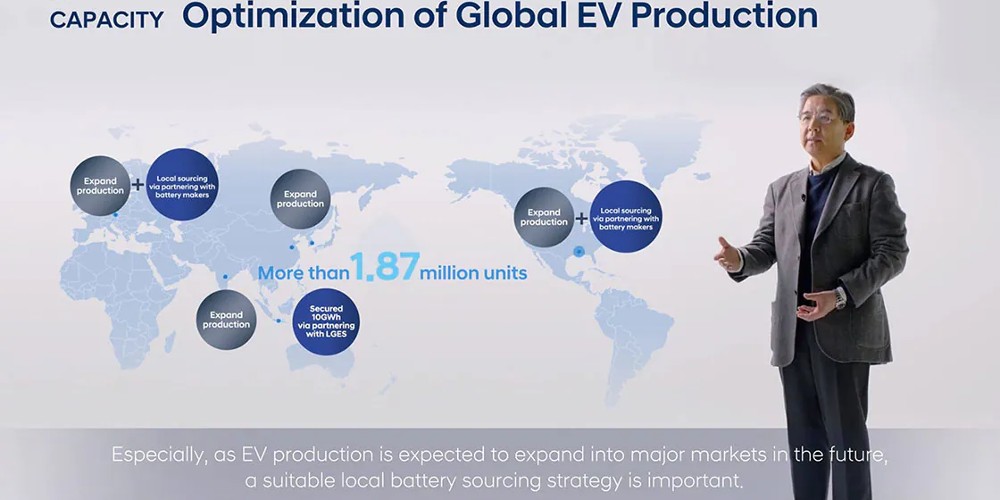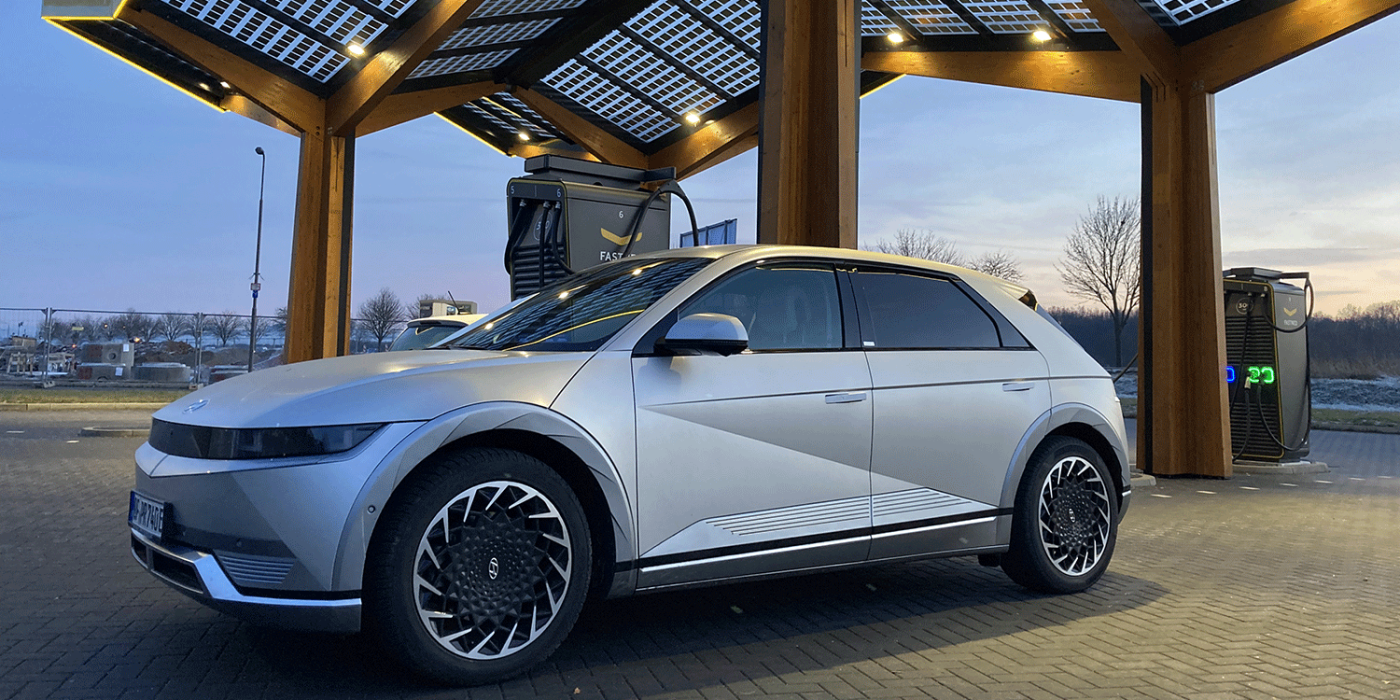Hyundai aims to sell 1.87 million EVs in 2030
Hyundai Motor Company has presented a strategic roadmap to accelerate its electrification ambitions. In order to achieve the higher sales targets, further development of the electric vehicle platform E-GMP, which relies on batteries with higher energy density, is to be presented as early as 2025.
Under the new plan, unveiled at a virtual ‘CEO Investors Day’, Hyundai Motor is raising its annual BEV sales target from a previously announced 560,000 units by 2025 to 1.87 million units by 2030, targeting a seven per cent share of the overall global BEV market and planning to invest 19.4 trillion won (about 14.5 billion euros) in electrification alone.
Hyundai Motor also announced the introduction of 17 BEV models by 2030 – eleven of the Hyundai brand, six of Genesis. Previously, there was also only one statement here up to 2025: according to the ‘Strategy 2025’ updated in December 2020, twelve BEV models are planned up to the target year. The models announced at that time are also to be based on the E-GMP, but not exclusively. This 800-volt platform was first launched in 2021 with the Ioniq 5.
The other five BEV models now announced are likely to rely on the further development of the E-GMP: in 2025, the new Integrated Modular Architecture (IMA) platform is to be introduced to standardise not only the chassis, but also motors and battery systems with Cell-to-Pack technology (CTP). With CTP, the cells are installed directly in the battery pack without the intermediate step via modules. This means that the installation space can be better utilised and, since some module components are omitted, the weight is also reduced.

The announcement is not surprising: In October 2021 CATL licensed its CTP technology to Hyundai Mobis, a supplier belonging to the Hyundai Group. At that time, however, it was not yet known for which applications Mobis would use the CATL technology. CATL had already presented its development plans based on this approach at the IAA in 2019.
Hyundai hopes that this will not only reduce costs in the IMA, but also improve charging times once again. The vehicles on the platform will be able to draw on five standardised electric drive systems, which should also reduce complexity and costs.
The group is also looking to diversify its battery procurement. The company has secured sufficient battery supply to meet its sales targets by 2023 and plans to expand its collaboration with various battery manufacturers to secure a total of 170 GWh by 2030.
BEVs to become highly profitable
In addition to hardware, Hyundai also plans to invest in software, developing architectures here “to provide customers with a satisfying ownership experience”. Models launched from the end of 2022 onwards are to be OTA-enabled. To simplify this process, the number of ECUs in the vehicles will be reduced.
In 2030, Hyundai aims to achieve an operating profit margin of ten per cent with the BEVs, so the electric cars should become highly profitable. This compares to a projected range of 5.5 bus 6.5 per cent for 2022 as a whole.
“Hyundai is successfully accelerating its transition to electrification and becoming a global leader in EVs despite a challenging business environment caused by the global chip shortage and ongoing pandemic,” says CEO Jaehoon Chang. “Along with our seamless efforts to improve EV value, Hyundai Motor will continue to secure its business sustainability as a ‘Mobility Solutions Provider’ through advanced technologies of not only hardware but also software.”





0 Comments